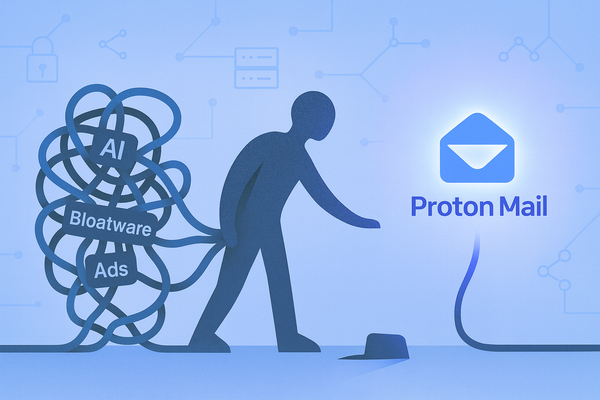How to Price your Clinical Research Consulting Services
A review of strategies to accurately price clinical research consulting services.

How much to sell your services for in your clinical research consulting business is an important question.
Charging too little, and you are leaving money on the table .
Charging too much and no one will want to hire you.
This article will provide points for you to consider and hopefully find your Goldilocks price. Not too low and not too high, but just right.
Hourly Rate
An easy place to start is to determine how much to charge by the hour.
Billing by the hour is conceptually easy to understand. You exchange your time for money. You may have already had a job like this. But how do you know what your time is worth as a clinical research consultant?
In reality your time is worth what value it provides. What problem are you solving every hour that you work? What is this worth to your clients?
This can be a bit abstract, but there some methods we can use to determine an appropriate hourly rate.
Replacing an Employee
The problem that you may be solving for a client is that they don't want to have an employee to complete the work that they hired your to do.
Maybe there is not enough work for them to hire a full time employee and it is cheaper to hire you as needed.
Whatever the reason is, if you can figure out what the hourly rate or yearly salary of an employee doing the same work, you can figure out what your hourly rate should be.
One rule of thumb is to take the hourly rate of the employed position and double it. Why? Because that estimate should be close to the cost of an employee doing the same work.
By hiring your clinical research consulting business to complete the work, there can be cost savings.
Let's use an example. An entry level writing position could pay a salary of $50,000 per year, or about $25 per hour. A potential starting price for a clinical research consulting business offering a similar service to what the employee would do could be about $50 per hour.
Market Research
What are similar businesses charging for similar services?
When you start your clinical research consulting business you are very likely entering a market (and now potentially competing with) established businesses. If you can gather research on these other businesses, you can figure out how they are pricing their services and why.
It is just as important to figure out why these businesses charge what they do, rather than just figuring out the price. Even when you are just starting out, you don't want your main competitive advantage to be that your clinical research consulting business is the cheapest.
Trying to compete on price is a recipe for disaster. If your only advantage to potential clients is price, what will you do when another business comes along with a cheaper price? You'd have to lower your prices. Then they might lower their prices even more, forcing you to do the same. This process can become cyclical and is known as a "race to the bottom."
At some point your prices will be too low to be sustainable and your clinical research consulting business will fail.
What you need to figure out with your market research is why each of the other business in your market price the way they do. Perhaps some offer high quality work or quick turnaround times-or both!
Now figure out how your business compares. Are you offering the same value to clients? More? Less?
Charging by the Project
Level up your clinical research consulting business by not actually billing by the hour, but by billing by the project.
This means that you charge a flat fee for the entire project. For example, a monitoring visit, writing an article, conducting data analysis, or reviewing strategy. Each of these would have an associated project cost, rather than an hourly rate.
As with an hourly rate, it can be hard to figure out what the project fee should be for your clinical research consulting business!
Here are a couple strategies to help.
Use an Hourly Rate
Yes, really.
The simplest way to move from an hourly rate to a project fee is to figure out how long the average project takes.
Next, multiply those number of hours by your hourly rate to get a starting point for your project fee.
For example, if you charge $100 an hour for medical writing and the typical project takes 10 hours to complete, then your project fee would be $1000.
Use Value
Figure out how much value you bring your client by solving their problem, and use that to develop your project fee.
Again, we can use the above strategy of Market Research. We can assume that similar clinical research consulting businesses already price their services at a level that reflects the value that they bring.
If you can figure out how your business compares you can get a rough idea of what your project fee should be. Are you offering the same value to clients? More? Less?
Advantages of Charging by the Project
Nathan Barry has a great article about the ladders of wealth creation that is invaluable to clinical research consulting businesses. According to this model, a better way to build wealth as a consulting business is to charge by the project rather than by the hour.
There are a few reasons why.
Client Clarity
A lot of clients want to know what the price will be.
Not a range. Not an estimate. The actual cost.
By charging by the project, you set expectations. This can also make it easier for your clients to give you their business if budgets need to be approved by someone other than your main contact. It is easier to approve a project fee than an hourly rate.
Rewards for Improvement
If you charge by the project, you can be rewarded for finding efficiencies in the service you offer.
For example, delivering the same quality of work but faster.
If you are charging an hourly rate and you get faster at delivering the same level of service overtime, you make less money. But, if you charge by the project you still make the same amount of money and the client gets the same quality of work, but quicker.
Win win!
This also frees up some of your time for other business, potentially increasing revenue.
Simplicity
Charging by the project can also bring you and your clients simplicity.
Having a standard fee structure makes it easier to provide proposals to clients. It can also give an idea to repeat clients what to expect if you have a standard fee structure. They can also budget for your services well in advance of the project starting.
You also won't have to worry about tracking your time to the nearest billable unit and total the hours up every week or month. You can just charge a percentage of the total project cost at certain stages of the project.
For example, 25% at the start, 25% for completing milestone #1, 25% for completing milestone #2, and 25% at project completion.
Risks with Charging by the Project
Project based billing has a lot of advantages over hourly billing, but there are a few disadvantages worth discussing.
Accurate Estimate of your Value
The biggest challenge with project based billing is deciding what the project fee will be!
If you grossly underestimate the time it will take to complete the project, you could be making far less than if you had just charged an hourly rate.
On the flip-side, if you way overestimate the value of solving your client's problem then you won't get any sales.
Scope Creep
Scope creep is also a threat with project based billing.
Scope creep is where the nature of the project charges, but the project fee does not.
For example, medical writing for a 1500 word article, but then the client requests 2500 words instead. Or monitoring all screening visits, but now the client wants all visits monitored.
This is pretty common, and the way to mitigate this risk is to reassess requests to see if a different project fee is needed for the new requirements. If so, amend your agreement to align with the new scope of work.
Summary
We have discussed strategies to determine the fee structure for your clinical research consulting business. We have reviewed a couple ways to bill clients, hourly or by the project, and some advantages and disadvantages of each. With these tools in mind, I hope that you can more easily and accurately price your services.
If you found this useful please let me know! If you have other strategies that worked for you I would love to hear it. Get in touch!




